
According to Kobus de Klerk, who owns the Mount D’Urban Campsite in partnership with his wife Kirsty and his parents Boeta and Mariette on the family farm near Helmeringhausen, the tourism concern has played a vital role in keeping the farming business afloat during taxing seasons of severe drought.
“Namibia went through a devastating drought between about 2012 and 2019. The campsite played a valuable role in 2019, when the drought was at its worst. The campsite was able to supplement enough income to cover some of the farm’s running costs. In some ways it took pressure off having to sell more stock to buy feed during the drought. Value-wise, in today’s market, it could probably be worked back to roughly 200 marketable lambs,” he says.
The farm is situated in the south-western part of Namibia, 23km north of Helmeringhausen. Separated by the Swartrand mountain range, it stretches about 9 000ha from the edge of the mountain range westward, while the remaining 13 000ha is situated on top of the Swartrand range, extending eastward for about 10km.
The farming business consists primarily of commercial cattle and goat production. In the 1970s, the farm belonged to Consolidated Diamond Mining and was drawn on to supply the operations in Oranjemund with meat products for their workforce.
Remnants of the old feedlots can still be found on the farm today. Coming from the Eastern Cape, the De Klerk family partnership bought the farm in December 1985. It was stocked with cattle and they introduced Angora goats, which was a first for the area, as karakul had predominantly been farmed in the region.
This story is from the {{IssueName}} edition of {{MagazineName}}.
Start your 7-day Magzter GOLD free trial to access thousands of curated premium stories, and 9,000+ magazines and newspapers.
Already a subscriber ? Sign In
This story is from the {{IssueName}} edition of {{MagazineName}}.
Start your 7-day Magzter GOLD free trial to access thousands of curated premium stories, and 9,000+ magazines and newspapers.
Already a subscriber? Sign In

Agripreneur wins top award for butternut coffee
Bloemfontein-based agripreneur Chantelle de Bruyn has achieved global recognition.
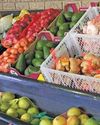
Final fresh produce inquiry pins low level of transformation on farming environment
The Competition Commission released its final report on the Fresh Produce Market Inquiry in mid-January, maintaining that transformation in the industry was being impeded by a lack of support for emerging farmers.
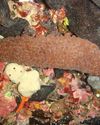
Illegal fishing in Australia reveals market gap for farmed sea cucumber
Illegal fishing practices in Australia have revealed a large market opportunity for sea cucumber farming.

An introduction to the Ford Ranger Tremor
In December 2024, the CAR magazine team received the Ford Ranger Tremor to accompany them through the festive season and into the new year. Oliver Keohane looks at what the Tremor is all about.
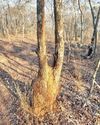
A farmer's experience with bush encroachment
Farmer David Addenbrooke has worked in the Zimbabwean beef industry for around four decades. Here, he relates his experience with bush encroachment and offers farmers some advice on battling this scourge.
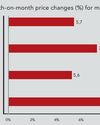
Good rains boost SA's summer grain crop prospects
This week, Absa AgriBusiness analyses several market dynamics and shares its expectations for local grain and oilseed prices over the coming months.
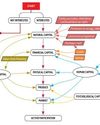
A self-help tool for getting young people engaged in agriculture
The active engagement of the youth in agriculture is pivotal to the sustainability and growth of the sector. Empowering them with the necessary support is key to nurturing future farmers who are equipped to overcome future challenges like the effects of climate change.Dr Primrose Madende, researcher at the Department of Agricultural Economics at the University of the Free State
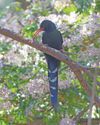
Rallying to the cackle of this raucous bird
The gregarious and territorial Green Wood-hoopoe, also known as the Red-billed Wood-hoopoe, is extremely vocal and is often heard before it is seen. And for very good reason,

SA coffee lovers can expect price increase
South African coffee prices are expected to spike sharply in the foreseeable future because of failed crops in the country’s main importing countries: Brazil and Vietnam.
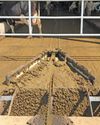
Paving the way for a greener dairy industry
The dairy industry is often criticised for its environmental impact, but a new innovation called DESTiny aims to empower farmers to take control of their carbon footprints. Riana Reinecke, the tool's developer, explained to Glenneis Kriel how it works and how farmers can benefit from it.